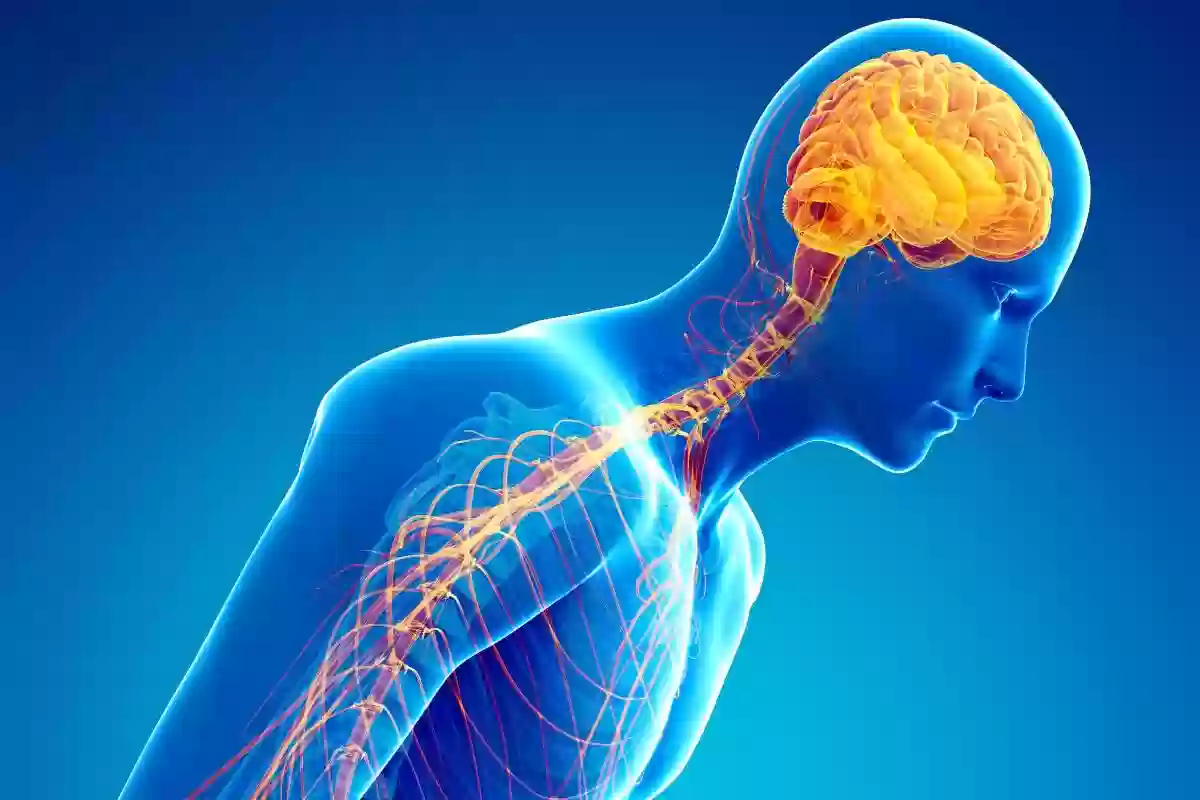The nervous system is a complex system that regulates and coordinates the activities of the body. It consists of two main divisions: the central nervous system and the peripheral nervous system.
Central Nervous System:
The central nervous system consists of the brain and the spinal cord. The brain is the main control center for body functions and sensory information processing. The spinal cord acts as a channel for transmitting nerve signals between the body and the brain.
Peripheral Nervous System:
The peripheral nervous system consists of other nerve elements outside the brain and spinal cord. This includes peripheral nerves and the autonomic nervous system. Peripheral nerves transmit signals between the body and the central nervous system, while the autonomic nerves control involuntary functions such as breathing and blood pressure regulation.
The major organs of the nervous system include:
– Eyes: Play a crucial role in receiving visual signals.
– Ears: Assist in receiving auditory signals.
– Sensory taste receptors: Capture taste and convert it into nerve signals.
– Sensory smell receptors: Allow interaction with chemicals in the air.
– Sensory receptors in the skin, joints, and muscles: Play a role in sensing touch and movement.
The nervous system is susceptible to a variety of disorders and can be damaged due to factors such as trauma, infections, degeneration, structural defects, tumors, circulatory disorders, and autoimmune disorders.
Disorders of the nervous system include:
1. Vascular disorders:
– Stroke.
– Transient ischemic attack (TIA).
– Subarachnoid hemorrhage.
– Subdural hematoma.
– Cerebral hemorrhage.
– Extradural hemorrhage.
2. Infections:
– Meningitis.
– Encephalitis.
– Poliomyelitis.
– Epidural abscess.
3. Structural disorders:
– Brain or spinal cord injury.
– Bell’s palsy.
– Cervical spondylosis.
– Carpal tunnel syndrome.
– Brain or spinal cord tumors.
– Peripheral neuropathy.
– Guillain-Barré syndrome.
4. Functional disorders:
– Headaches.
– Epilepsy.
– Dizziness.
– Neuralgia.
5. Degenerative disorders:
– Parkinson’s disease.
– Multiple sclerosis.
– Amyotrophic lateral sclerosis (ALS).
– Huntington’s disease.
– Alzheimer’s disease.
These are some of the disorders that may affect the nervous system, varying in nature and impact on body functions. Understanding these disorders underscores the importance of neurohealth care and seeking appropriate treatments and preventive measures.


No comment